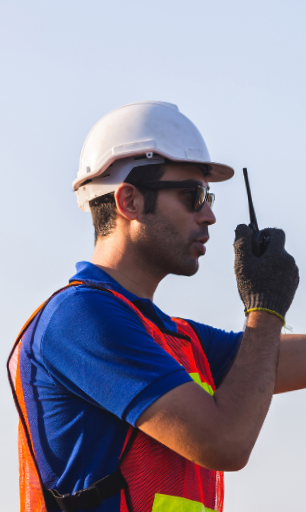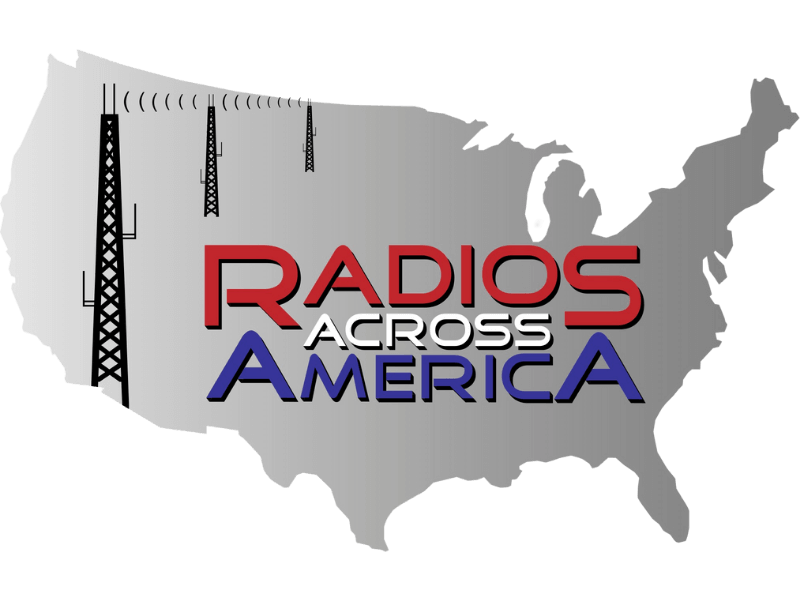
Although FRS is not restricted from use by businesses, we do not recommend it’s use. This article explores the many reasons you should never use FRS radios for your business.
Reason #1: Security
All FRS radios use the same frequencies. When you transmit on any of the 22 available channels which are pre-programmed into the FRS radio, anyone tuned in to the same channel will be able to hear your communications. This could be a competitor trying to learn secrets regarding your business operations or a thief monitoring the frequency to ascertain your business activity patterns, including movement and location of personnel, location, quantity and value of assets and inventory, asset protection measures in place, when early arriving employees get there and when late-working employees leave, and any other facet of your business activities which might commonly be discussed during the course of any workday. This information could easily be used to form a plan of attack to stage an after hours break-in or a business hours smash and grab or coordinated attack with theft or terror as components of the assault.
Reason #2: Privacy (or rather lack thereof)
You may ask “How could any of the scenarios listed in Reason #1 occur, because I use Privacy Codes in my radios?” It’s simple: the term “Privacy Codes” is a total misnomer at best and a deceptive marketing gimmick at worst. There is no such thing as privacy when transmitting on an FRS radio. All a “privacy code” does is prevants YOU from hearing OTHERS operating on the same channel with a different code. It DOES NOT insure your privacy. We will be publishing a separate blog post on the “privacy codes”, so we won’t go into the technical details here. But suffice it to say that every FRS radio also supports the same 121 “privacy codes” as all other FRS radios. All a nefarious person needs to do is figure out which frequency and code combination your business uses and – voilà! – they will hear your every transmission. But here’s the rub: THEY DON’T EVEN HAVE TO MATCH YOUR “PRIVACY CODE” to hear you! All they have to do is program their receiving radio to NO privacy code (otherwise known as “carrier squelch”) and, although they will also hear everyone else on the channel, there will be no impediment to them listening to your every utterance over the radio.
Reason #3: Interference from other users
Since every FRS radio uses the same 22 channels and the same121 CTCSS and DCS codes (the REAL NAME for “privacy codes”!) it would be possible for another business to operate on the same frequency and code as your business. This could cause interference to your communications because – if they are close enough to you – your people could hear transmissions intended for their employees. If you both have an employee with the same name (let’s say his name is Pete) and the other business asks their “Pete” to come to the front desk, or receiving dock, or parking lot, the wrong “Pete” could respond and act accordingly. Not only that, whether or not the other company is using the same code as your organization, if they are simply transmitting on the same channel (and someone at each business transmits simultaneously), the two signals can combine to cause garbled transmissions and an annoying squealing called “heterodyning” will be heard by both your radio users and theirs.
Reason #4: Interference (to other radio services)
Since the FRS radio service and the GMRS radio service use the same 22 frequencies, it’s possible for someone using an FRS radio to unintentionally interfere with a Licensed GMRS radio user. This happens regularly when FRS radio users choose to use channels 15 through 22. Those channels correspond to the frequencies of the 8 major high-traffic GMRS repeater frequencies. If a GMRS user is operating their station at a sufficient distance from the repeater for the repeater signal to be weak, an FRS user one to two blocks away from the GMRS user could easily override the signal of the repeater and cause the GMRS user to completely miss the other side of the conversation. This is a regular occurrance on GMRS. Too many businesses rely on the “cheap solution” and purchase FRS radios from Amazon or at a big box retailer and just turn them onto a channel and use them.
Reason #5: It’s SO EASY to remedy
The solution is so simple, yet not obvious to many small (or even large) business: Get an FCC License for your business and purchase Business Band (otherwise known as Commercial Grade) radios to use. This solution has the possibility to resolve all the aforementioned problems. Businesses who follow this process will have, by virtue of the kind of radios which are required in order to operate on the various business bands, the best shot as receiving security and privacy and avoiding the interference pitfalls associated with using “consumer” radios (like FRS).
Here’s why: There are literally hundreds of FCC-allocated frequencies available in what’s known as “the business and industrial pool”, This “pool” of frequencies, or channels, which businesses may operate on (once authorized by the FCC) are not exclusive, but they are efficiently maintained through frequency coordination and FCC regulation so that the likelihood of your business being assigned the same frequency as someone one, five, ten or even twenty miles away is extremely unlikely. On top of that if you use a digital mode (like DMR or NXDN) people using regular analog FM radios will not be able to understand your communications because it would sound to them like hissing or buzzing sounds, not voice. On top of that, secure digital encryption is legal and available for people using Commercial Grade Radios on Business Band Frequencies. Secure, Private and Interference Free. That’s what getting OFF of FRS (“Toy Radios”) and onto the Licensed Business Band frequencies with appropriate Commercial Grade radios (“Real Radios”) will do for you.
Radios Across America LLC is a full-service two-way radio dealer you can trust. We can help not only with Frequency Coordination and FCC Licensing, but provide a wide variety of radios for pretty much any business. Give us a call at (800) 571-GMRS (4677) or drop us a line through our contact page.
